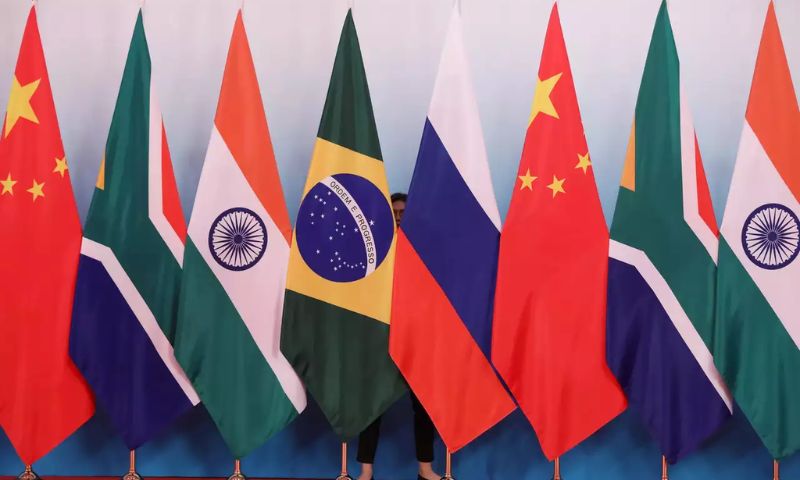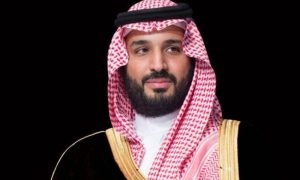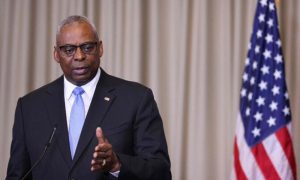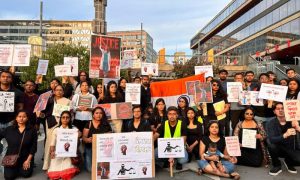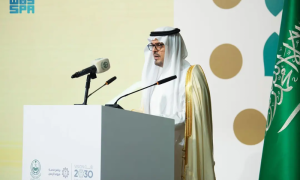JOHANNESBURG: The heads of the BRICS developing economies — which together make up almost a quarter of the world’s wealth — will gather this week in Johannesburg to discuss expanding the group’s influence while pushing a change in geopolitics on a global scale.
President Xi Jinping from China, Narendra Modi from India, and Luiz Inacio Lula da Silva from Brazil are scheduled to attend the annual three-day meeting, which begins on Tuesday, hosted by Cyril Ramaphosa of South Africa. Putin, the president of Russia, will participate virtually as well.
Putin decided not to attend in person since he is the subject of an arrest order issued by the International Criminal Court, which South Africa is obligated to execute if he enters the country. Sergey Lavrov, the foreign minister, will go to Johannesburg instead.
The Chinese ambassador to Pretoria, Chen Xiaodong, stated at a briefing that “the traditional global governing system has become dysfunctional, deficient, and missing in action,” adding that BRICS is “increasingly becoming a staunch force in defending international justice.” At least forty countries have indicated interest in joining, and 23 of those have formally applied to join the BRICS, indicating an increasing level of interest in the group. The BRICS states, officially established in 2009, presently comprise 42 percent of the world’s population and 23% of the global GDP.
One of the reasons nations are rushing up to join is “the very polarized world we live in, that has been more polarized by the crisis between Russia and Ukraine, and where countries are compelled to take sides,” according to Anil Sooklal, South Africa’s ambassador-at-large for Asia and the BRICS.
“Southern countries don’t want to be told who to support, how to act, or how to manage their internal affairs. They are now powerful enough to defend their separate positions, Sooklal continued. Many nations interested in joining the club “see BRICS as an alternative to the current hegemony,” according to Lebogang Legodi, a lecturer in international politics at the University of Limpopo. During the meeting, a “Friends of BRICS” program will be attended by about 50 additional leaders.
This year’s meeting is centered on “BRICS and Africa: Partnership for Mutually Accelerated Growth, Sustainable Development, and Inclusive Multilateralism.” This comes at “a critical inflection point,” according to Steven Gruzd of the Africa-Russia Africa project at the South African Institute of International Affairs.
At the summit’s conclusion, a choice on BRICS membership expansion is anticipated, according to Sooklal.









